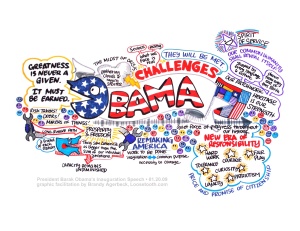This is a post I’ve wanted to write for some time but hadn’t found my courage voice for it. It was born from a comment of a student evaluation from a fall course that stated that not only were my “clothes inappropriate” but I also “had Facebook”. The comment on my wardrobe is completely off (my outfits are always professional and tasteful) but then again the idea of fashion has always been a generational thing … has technology now become the next great generational divide?
Of late, there has been a resurgence of talk about parents on Facebook and MySpace and what kind of parents has his/her own account. Over the weekend, at a BBQ in the rain, this became part of what started as a small exchange between 3 moms (myself included) to a group conversation with many parents. In a previous post on texting, the generation gap is obvious…new technologies sometimes elude people who are not interested in learning (isn’t that always the case though?). So one of the first questions that arose was “How old do you have to be to have a Facebook account?”. One of the mom’s replied “under 40”. The parents all laughed and said “that counts us out”. Of course, it is an easy out…we don’t fit the age criterion so we are safe. Then a friend turned to me and said “Wait, you’re not 40. Do you have one?” And that started an engaging conversation about technology, media literacy vs. literacy, and what all this means.
As I have mentioned in the past, each exploration of new applications, platforms, networks, etc. was purely academic in nature. Unfortunately, it has become much more than work. I have become a partisan of social media for many reasons: it is informative, educational, entertaining, enlightening and allows me to meet not just my neighbours, colleagues, and friends but expand my geographical limitations by allowing me to converse and “friend” people from the far corners of the earth.
In my humble opinion, the idea that certain sites become “theirs” (students, teens, kids) and others “ours” (educators, adults, parents) is speculative. There are too many social dichotomies that become reinforced (and perhaps validated?) when we fall into the trap of dividing technological culture according to our biases, fears and misunderstandings. This mutual exclusivity of sites and apps for certain age groups demonstrates an unwillingness of users to see beyond their own nose. Perhaps this is one key difference between “us” and “them”… are we adults more “global” in our use of technology? Are they more “solipsistic”? lol! I fell into the trap, didn’t I?
These sites can provide different services and serve different needs for a multitude of users and I think it is up to each user to accept and open her/his mind to the unending possibilities that things like Facebook, MySpace, Twitter, Plurk, etc. can provide without wanting exclusive rights to it.
Is this just another phase in the evolution of generational gaps or is it something more? What do you think?
 today’s inauguration left me speechless. So when I saw this graphic faciliation on Twitter I knew I had to share this image with everyone. There are many aspects of his address about which I could go on, but I will just highlight what I found memorable:
today’s inauguration left me speechless. So when I saw this graphic faciliation on Twitter I knew I had to share this image with everyone. There are many aspects of his address about which I could go on, but I will just highlight what I found memorable: